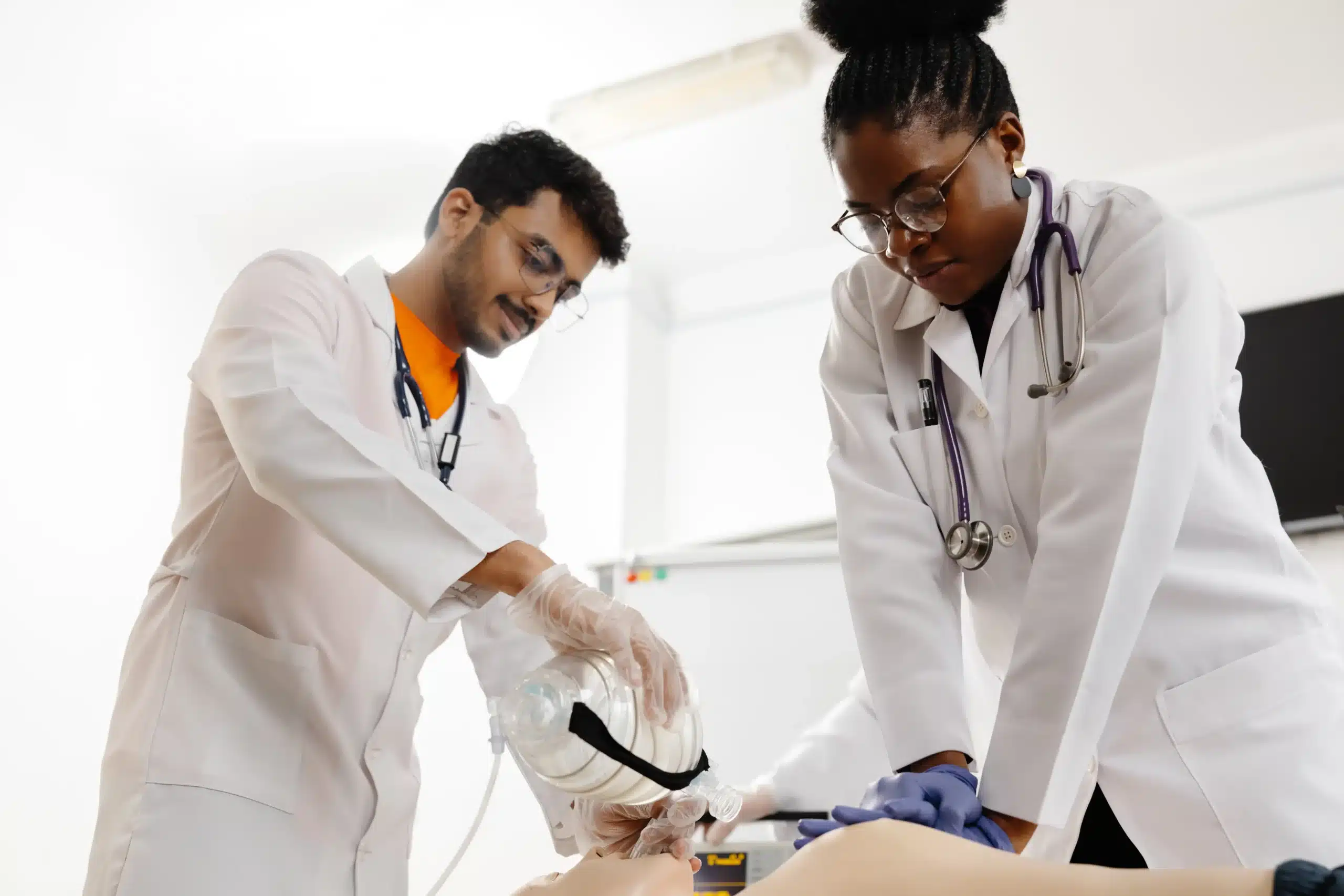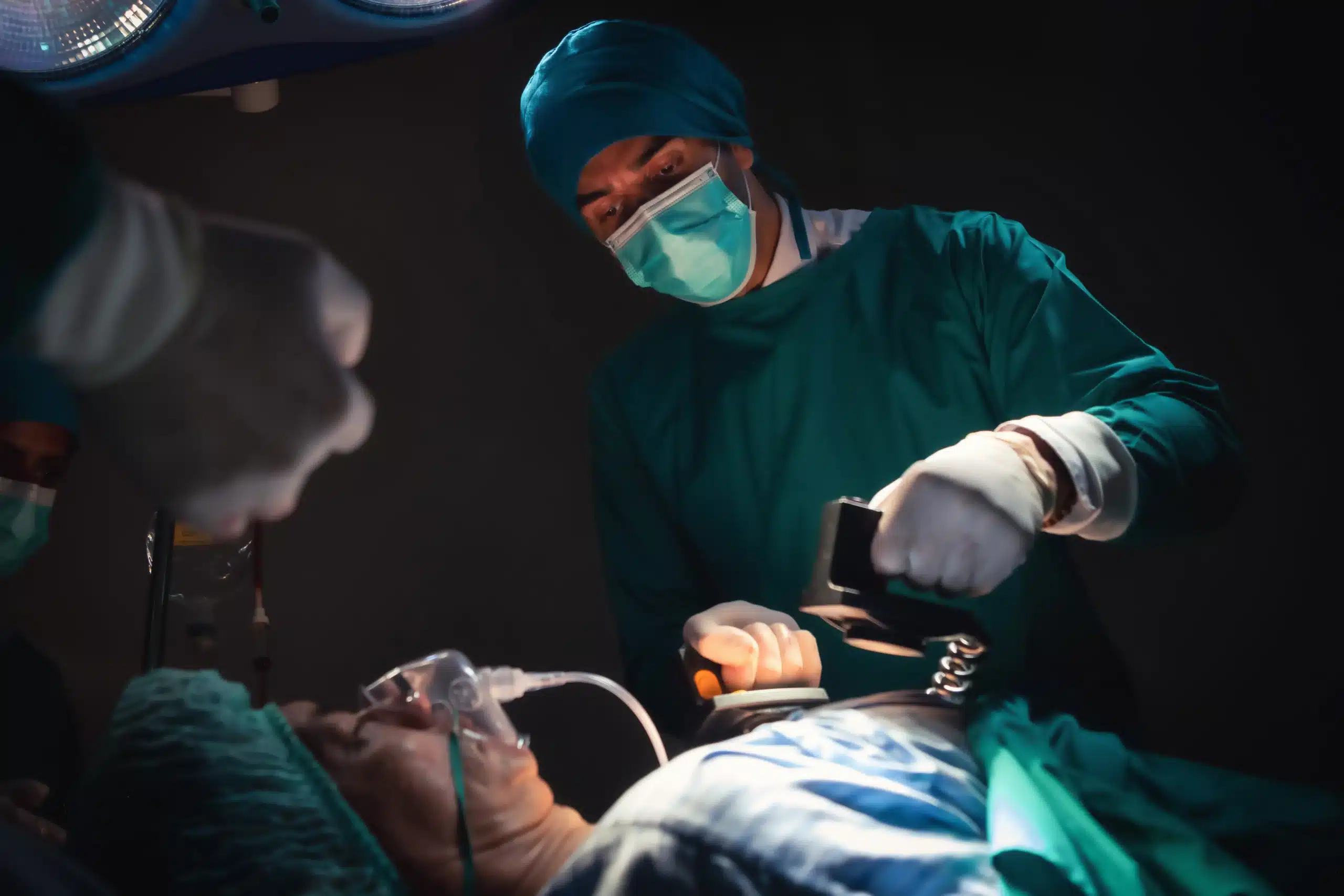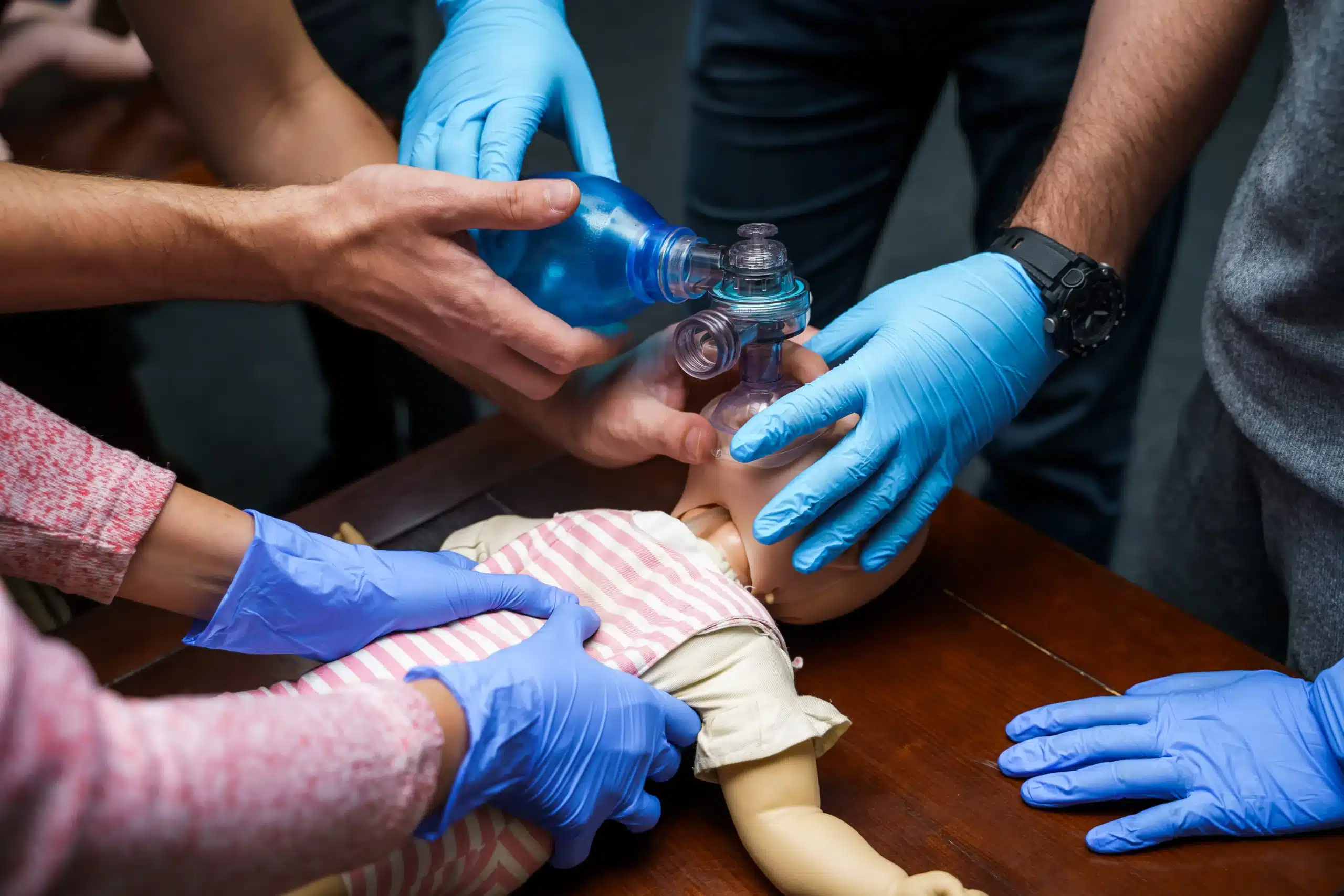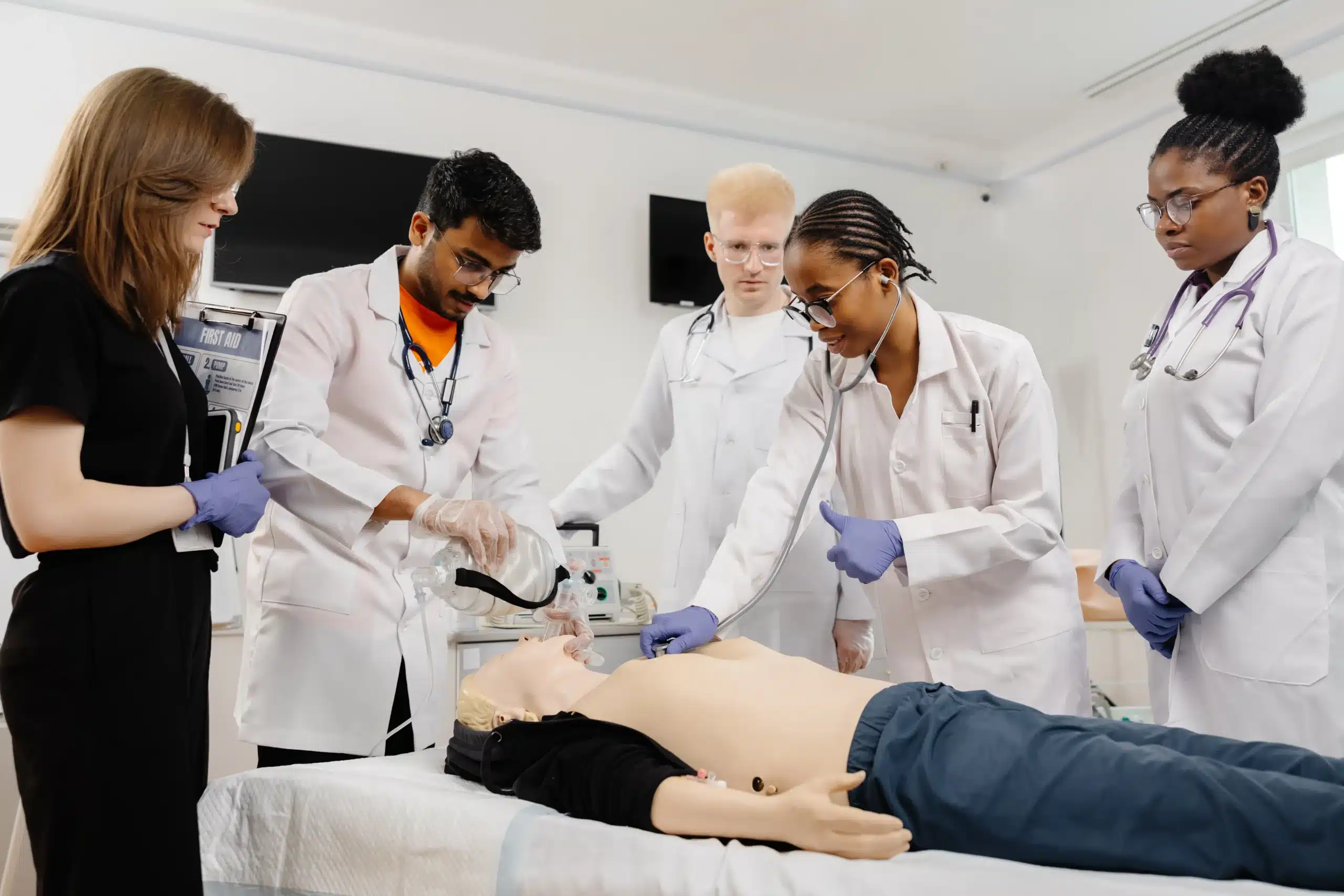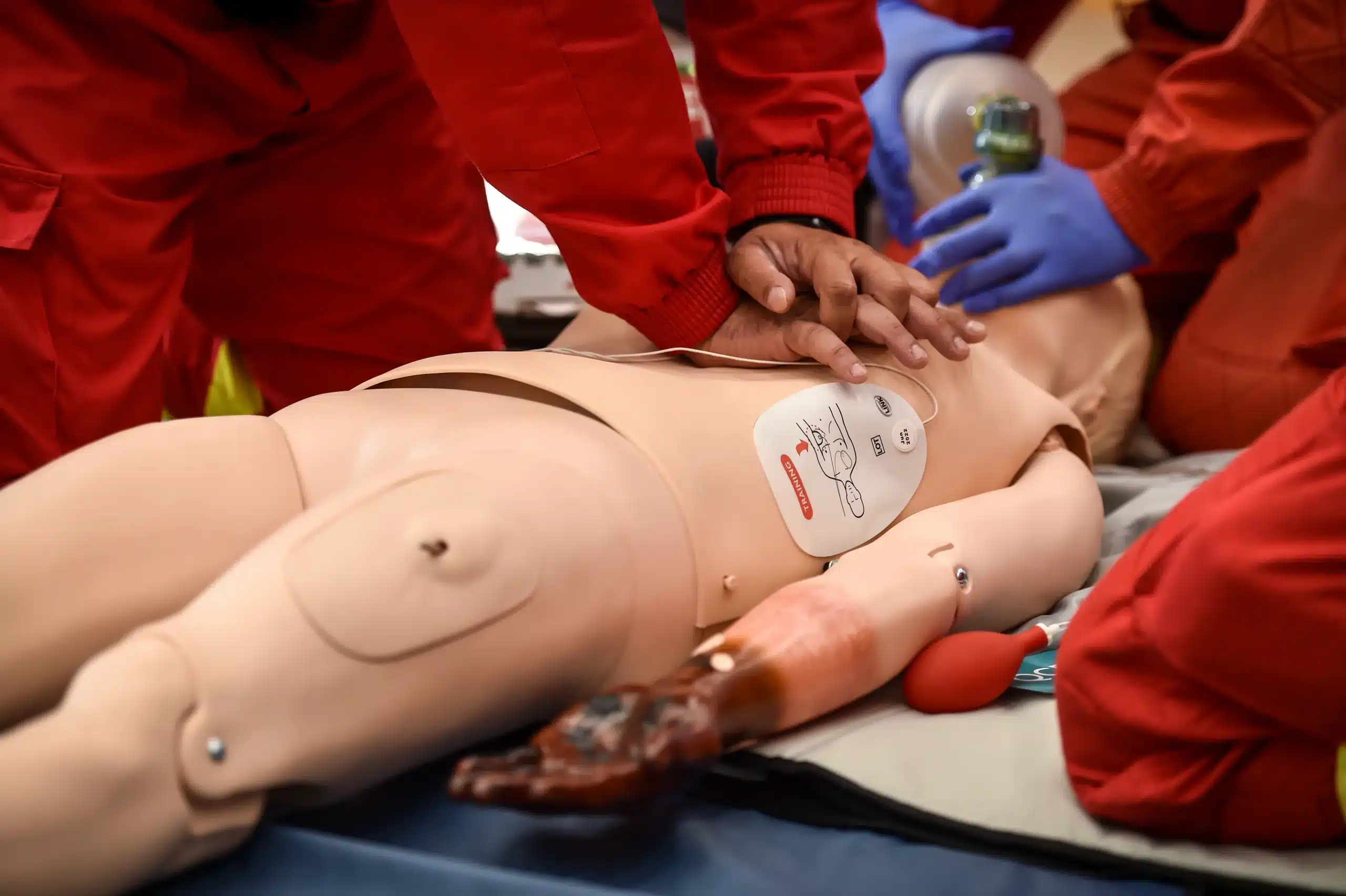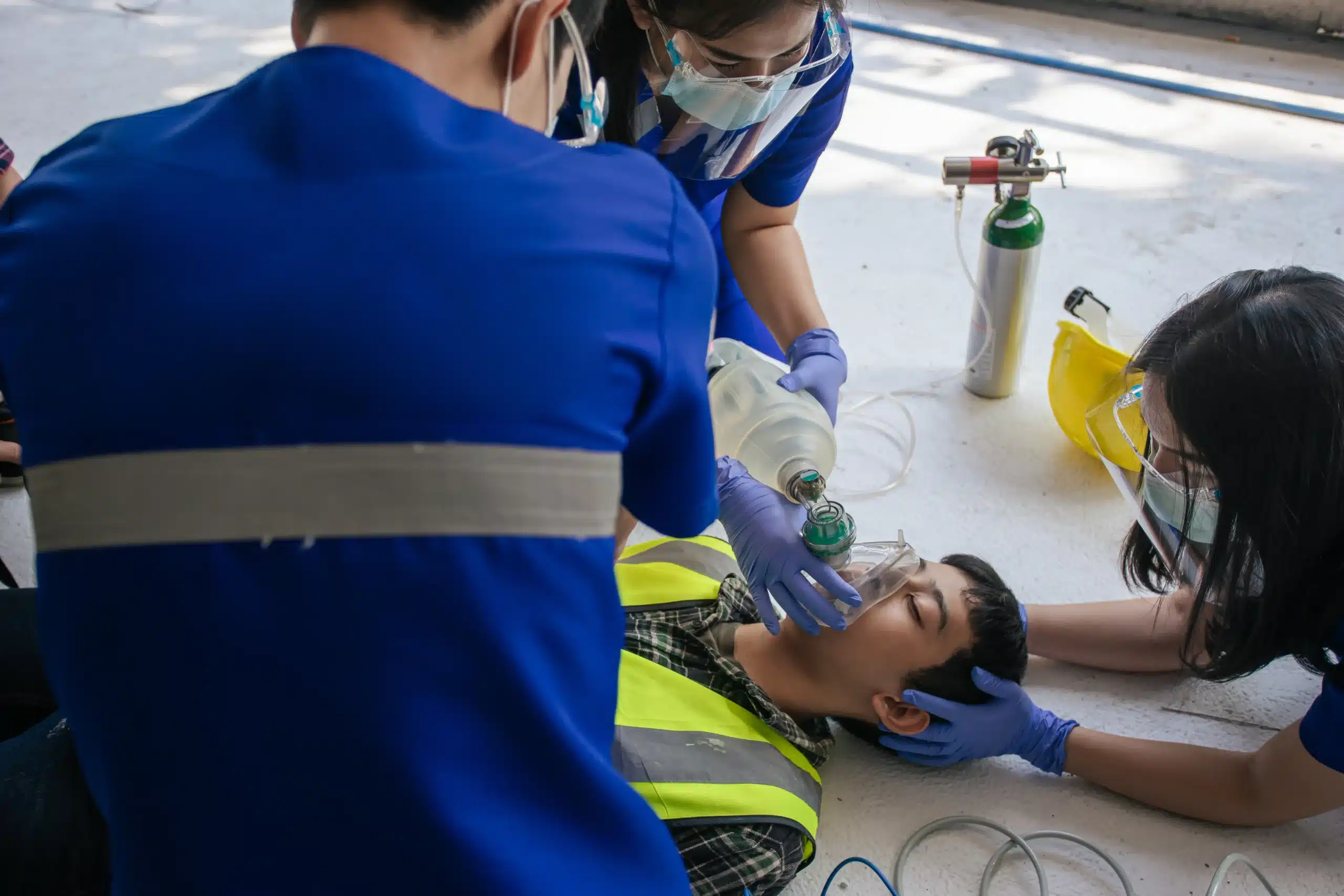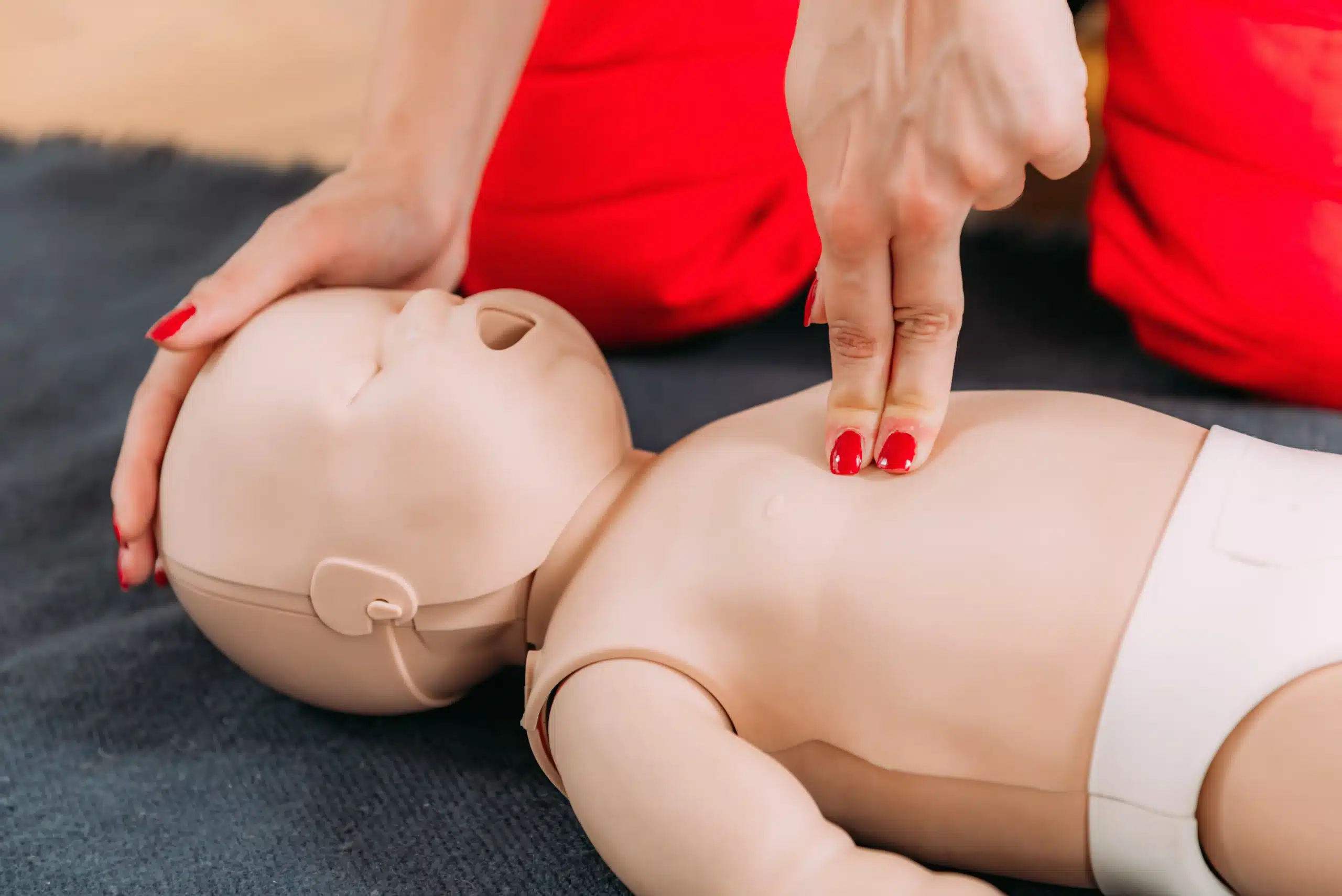Working in healthcare, you know that in critical situations, seconds can make all the difference. When a patient experiences a cardiac emergency, having the right training is paramount. That’s where Advanced Cardiac Life Support (ACLS) comes in. This certification equips you with the knowledge and skills to handle those high-pressure moments effectively. If you’re a healthcare provider in San Francisco seeking to enhance your expertise in managing cardiac emergencies, this guide will break down everything you need to know about advanced cardiac life support in SF, from understanding the certification process to finding the right training provider for you.
Key Takeaways
- ACLS is essential for healthcare professionals: Mastering these life-saving skills empowers you to confidently handle cardiac emergencies and improve patient outcomes. Consider providers like Safety Training Seminars for accessible, high-quality training.
- Find the right ACLS course for your needs: Explore various course formats—in-person, hybrid, or online—to match your learning style and busy schedule. Factor in course length, prerequisites, and recertification requirements when making your decision.
- Plan for ACLS certification costs: Understand the investment for initial certification and renewal, and compare pricing from different providers. Inquire about potential financial assistance or discounts.
What is Advanced Cardiac Life Support (ACLS)?
What is ACLS?
ACLS (Advanced Cardiac Life Support) is a set of clinical guidelines and protocols for managing cardiac emergencies. It’s designed for healthcare professionals like doctors, nurses, paramedics, and respiratory therapists, focusing on advanced techniques for serious heart problems. These protocols cover everything from recognizing and treating heart attacks and strokes to managing respiratory arrest and other life-threatening conditions. Think of it as a comprehensive roadmap for healthcare providers to follow during those critical moments when seconds count. Learn more about ACLS.
Why is ACLS Important for Healthcare Professionals?
ACLS certification is often a requirement for many healthcare jobs, and for good reason. It equips professionals with the skills to make quick, informed decisions in high-pressure situations, ultimately leading to better patient outcomes. By adhering to ACLS guidelines, healthcare teams can work together seamlessly, minimizing errors and maximizing the chances of a positive outcome. If you’re a healthcare provider, staying up-to-date with your ACLS certification demonstrates your commitment to providing the best possible care. Explore ACLS courses in San Francisco to enhance your skills and knowledge.
Key Skills You’ll Learn in ACLS Training
ACLS training isn’t just about theory; it’s about practical, hands-on skills. You’ll learn how to quickly assess a patient’s condition, interpret electrocardiograms (ECGs), and administer medications like epinephrine and amiodarone. The course also covers advanced airway management techniques and how to use defibrillation effectively. Beyond the technical skills, ACLS training emphasizes teamwork and communication, crucial elements in coordinating a successful response to a cardiac emergency. You’ll practice these skills in simulated scenarios, giving you the confidence to apply them in real-world situations. Sign up for an ACLS course to gain these essential skills.
Top ACLS Certification Providers in San Francisco
Finding the right ACLS certification course can feel overwhelming, so we’ve compiled a list of top providers in San Francisco to help you in your search. We’ve considered factors like cost, scheduling, and course format to give you a well-rounded view of your options.
Safety Training Seminars
Safety Training Seminars prioritizes high-quality, affordable training, offering daily American Heart Association (AHA) courses in CPR, BLS, ACLS, and PALS. This makes these essential skills accessible to a wide range of healthcare professionals. They offer ACLS courses in San Francisco’s Nob Hill neighborhood, serving surrounding areas like Daly City, San Mateo, and Oakland. Their commitment to competitive pricing and convenient daily classes makes them a practical choice for busy professionals.
HeartStart CPR
HeartStart CPR provides AHA ACLS training and certification specifically designed for healthcare providers who might respond to cardiovascular emergencies. Their ACLS classes focus on equipping professionals with the skills and knowledge to deliver effective cardiovascular life support. While their website doesn’t list specific locations, they serve the broader Bay Area, making them a potential option for those in and around San Francisco.
UCSF Kanbar Center
The UCSF Kanbar Center, a well-respected institution, offers AHA certification courses in BLS, ACLS, and PALS. Their focus on simulation and clinical skills development provides a strong foundation for healthcare professionals seeking ACLS certification. Given UCSF’s reputation, their courses are likely a good investment for those looking for comprehensive training.
Bay Area CPR
Bay Area CPR offers a comprehensive selection of AHA-certified courses, including BLS, ACLS, PALS, and even Wilderness First Aid. Known for flexible scheduling and convenient Bay Area locations, they provide accessible ACLS training options. Their broader course offerings could be beneficial for professionals seeking multiple certifications or specialized training.
Star CPR
While Star CPR offers AHA-certified courses, including ACLS, their primary service area is Kern County and the surrounding areas. This location makes them less convenient for those specifically seeking training in San Francisco. However, they might be a suitable option for individuals located closer to their Kern County service area.
ACLS Course Formats and Requirements
Finding the right ACLS course format is key to successfully completing your training. Let’s break down the options, time commitments, and what you need to know to enroll.
In-Person, Hybrid, and Online Options
Many training centers in San Francisco offer a blend of learning styles. You can find entirely in-person ACLS courses for those who prefer traditional classroom settings. However, if you need more flexibility, many providers offer hybrid ACLS courses that combine online learning with hands-on skills sessions. This lets you study the material at your own pace before demonstrating your skills in person.
Course Duration and Time Commitment
How long an ACLS course takes depends on whether you’re getting initially certified or recertifying. Initial ACLS certification typically requires about 12 hours, often split between online learning and in-person skills practice. Renewal courses are generally shorter, around six hours. Some providers also offer combined ACLS and PALS courses, which can streamline your training if you need both certifications. These combined courses often take around 11 hours, with a mix of online and in-person components.
Prerequisites and Enrollment
Before enrolling in an ACLS course, you’ll typically need a current BLS for Healthcare Providers certification. This ensures you have the foundational CPR skills necessary for advanced training. Enrollment is usually straightforward. You can often register directly through the training center’s website, such as Safety Training Seminars, a woman-owned AHA Training Center.
Skills Assessment and Certification
ACLS certification isn’t just about book learning. You’ll learn essential skills to manage cardiovascular emergencies, from cardiac arrest to acute coronary syndromes. The skills assessment portion of the course involves demonstrating these skills in a simulated environment. This guide on ACLS certification offers a comprehensive overview of what’s involved.
Recertification
To maintain your ACLS certification, you’ll need to recertify every two years. Similar to initial certification, many training centers offer ACLS renewal courses that combine online learning with hands-on skills testing. This blended format allows for flexibility and helps you refresh your knowledge and skills efficiently.
Cost of ACLS Certification
Getting ACLS certified is an investment in your career and patient care. Understanding associated costs will help you plan accordingly. Here’s a breakdown of what to expect:
Initial Certification Costs
Initial ACLS certification typically involves two components: online learning and in-person skills testing. At Safety Training Seminars, the online portion costs $168, and the in-person skills session costs $90, totaling $258. You can view their ACLS course calendar and register for a class. This blended approach lets you learn the material at your own pace online and then demonstrate your skills in a hands-on environment.
Renewal Fees
Your ACLS certification is valid for two years. To maintain your credentials, you’ll need to complete an ACLS renewal course before it expires. Many training centers in San Francisco, including Safety Training Seminars, offer renewal courses that often combine online learning with in-person skills testing, similar to the initial certification. Renewal fees are generally lower than initial certification costs.
Additional Resources and Materials
Some providers include course materials in the overall cost, while others may charge separately. Check with your chosen provider about what’s included and if there are additional costs for manuals or other resources. Safety Training Seminars offers ACLS courses in San Francisco and over 60 other cities, making it easy to find a course that fits your schedule.
Compare Provider Prices
While cost is a factor, it shouldn’t be the only consideration when choosing an ACLS provider. Look for a balance of affordability, quality instruction, and convenient scheduling. Safety Training Seminars are known for competitive pricing and a commitment to excellent training. Comparing prices from different providers is always wise to ensure you’re getting good value. Check their low price guarantee.
Financial Assistance and Group Discounts
Some training centers may offer financial assistance or group discounts. If you’re with a larger group needing ACLS certification, ask about potential discounts to reduce the cost per person.
Get ACLS Certified in San Francisco
Getting your ACLS certification is a straightforward process. Here’s a step-by-step guide to help you get started:
Choose the Right Provider
Finding the right provider is the first step. Look for an AHA Training Center like Safety Training Seminars, known for offering courses daily at competitive prices. Consider factors like location, schedule flexibility, and the provider’s reputation. Reading reviews can give you a sense of other students’ experiences. For those in the San Francisco area, check out their BLS, ACLS, and PALS courses. They also offer a low price guarantee.
Common Enrollment Challenges
One common challenge is finding a course that fits your busy schedule. Many training centers offer ACLS renewal courses with a blend of online learning and in-person skills testing. This hybrid approach offers flexibility, allowing you to complete some coursework at your own pace. Be sure to check the provider’s website or contact them directly to understand their specific course offerings and scheduling options. If you’re looking for NRP certification, you can find those courses here.
Prepare for Your ACLS Course
ACLS certification involves a comprehensive training program covering cardiovascular emergencies like cardiac arrest, stroke, and acute coronary syndromes. Before your course, review the provider’s materials and any recommended pre-course work. Familiarizing yourself with the core concepts will help you get the most out of your training.
Support and Resources
A good training provider will offer support and resources beyond the initial certification. Safety Training Seminars, for example, offers various courses, including BLS, PALS, CPR, and First Aid. Look for providers who offer ongoing support or refresher courses to help you maintain your skills.
Post-Certification Opportunities and Continuing Education
After you’re certified, remember that maintaining your skills is crucial. ACLS training contributes to improved survival rates and better patient outcomes (AHA ACLS information). Consider pursuing continuing education opportunities to stay up-to-date with the latest advancements in cardiovascular care. This will not only enhance your professional skills but also demonstrate your commitment to providing high-quality patient care.
Related Articles
- Online ACLS Classes Oakland: Your Guide – San Francisco CPR Classes
- ACLS HeartCode SF: Your Complete Certification Guide – San Francisco CPR Classes
- ACLS Renewal in San Francisco: The Ultimate Guide – San Francisco CPR Classes
- ACLS Certification & Renewal Courses – San Francisco CPR Classes
- CPR, BLS, ACLS, PALS Certification Courses in San Francisco, CA
Frequently Asked Questions
What exactly does ACLS training cover?
ACLS training provides healthcare professionals with the knowledge and skills to manage a range of cardiovascular emergencies, from basic life support to advanced techniques like ECG interpretation, medication administration, and airway management. It emphasizes a team-based approach and prepares you to handle critical situations effectively.
How do I choose an ACLS provider in San Francisco?
Consider factors like cost, schedule, course format (in-person, hybrid, or online), and the provider’s reputation. Look for providers offering AHA-certified courses and convenient locations. Reading reviews and comparing options can help you make an informed decision.
What are the typical costs associated with ACLS certification?
Costs vary depending on the provider and whether you’re pursuing initial certification or recertification. Initial certification typically includes fees for both online learning and in-person skills testing. Renewal courses are generally less expensive. Don’t hesitate to contact providers directly to inquire about pricing and any available discounts.
What are the prerequisites for taking an ACLS course?
You’ll generally need a current BLS for Healthcare Providers certification before enrolling in an ACLS course. This ensures you have the foundational CPR knowledge and skills required for advanced training.
How can I maintain my ACLS certification after I’ve completed the course?
ACLS certification is valid for two years. To maintain your credentials, you’ll need to complete a recertification course before it expires. Many providers offer renewal courses that combine online learning with in-person skills testing, allowing you to refresh your knowledge and skills efficiently.


